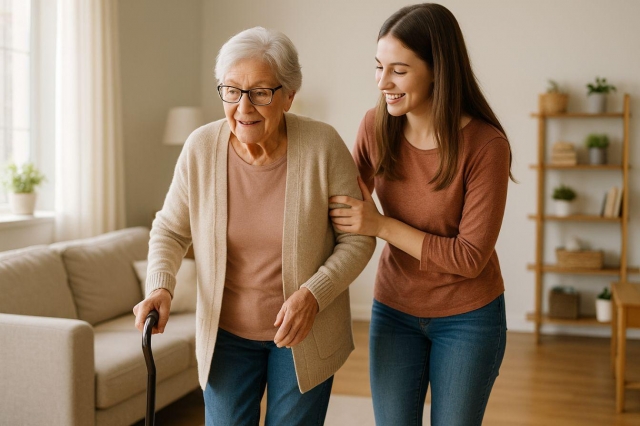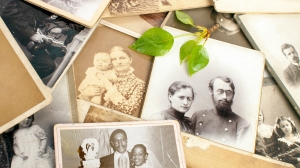When someone you love goes through hip replacement surgery, it can feel a little scary at first. There are new routines, new rules, and plenty of questions about what comes next. But with the right mix of patience, love, and simple planning, you can help your grandma heal comfortably and feel supported every step of the way.
This is not just about recovery. It is about showing her that family is her best medicine.
Understanding the Road to Recovery
Hip replacement surgery is common for older adults. It can relieve years of pain and bring back the ability to walk freely again. Still, the first few weeks after surgery are a delicate time. Your grandma's body is healing, and she will need help with even small tasks.
The recovery process usually happens in three stages. First comes the hospital stay, where doctors and nurses monitor her closely and make sure her new hip is functioning well. Then she moves home, where most of the healing takes place. The final stage involves physical therapy, where she slowly regains strength and balance.
Knowing what to expect can make you a calmer, more confident helper. Ask her doctor or nurse to explain her specific recovery plan. Understanding her pain management schedule, therapy exercises, and mobility limits will help you provide the best care possible.
Setting Up a Safe and Comfortable Home
Before your grandma comes home, take a little time to prepare her space. A few small adjustments can make her house safer and easier to move around. In home senior care can be a great resource when planning to care for your grandma.
Start by removing anything that could cause her to trip. Loose rugs, cords, or clutter on the floor are common hazards. Keep pathways wide and clear. Move her favorite chair closer to the kitchen or bathroom so she does not need to walk too far.
Bathrooms can be tricky for someone healing from hip surgery. Installing grab bars near the toilet and shower makes a huge difference. If possible, use a raised toilet seat or a shower chair to make things easier. Non-slip mats are another great addition.
If her home has stairs, try to set up a living area on the main floor. A recliner, a small table, and a lamp near her favorite window can create a cozy recovery spot. Add a soft blanket, a water bottle, and a basket for books or remote controls. The goal is to make her feel safe, comfortable, and independent without having to move too much.
Helping With Daily Tasks
During the early weeks, your grandma will need help with everyday routines. Simple things like cooking, getting dressed, or reaching for items on a high shelf may be difficult.
Plan and cook healthy meals that are easy to eat and full of nutrients that support healing. Protein, vegetables, and whole grains help her body repair faster. Keep snacks like yogurt, nuts, and fruit nearby so she does not have to get up too often.
Getting dressed may also take some creativity. Choose loose-fitting clothing and slip-on shoes with good traction. Help her sit down when putting on socks or pants to prevent falls.
Medication reminders are another big part of caregiving. Use a pill organizer or phone alarm to keep track of her schedule. If she has physical therapy appointments, write them on a big calendar where she can see them easily.
One of the hardest parts for many caregivers is finding the balance between helping and over helping. Encourage your grandma to do small tasks herself when it is safe to do so. Each independent step will boost her confidence and speed up her recovery.
Encouraging Physical Therapy and Gentle Movement
Physical therapy is the secret to a successful hip recovery. Even though it can be tiring, every small exercise helps her muscles rebuild strength and flexibility.
You can make therapy time more enjoyable by turning it into a shared routine. Play soft music, cheer her on, and celebrate little wins like standing without help or walking to the mailbox. Progress may seem slow at first, but consistency matters more than speed.
If she feels discouraged, remind her of how far she has already come. Recovery is not about perfection. It is about steady steps in the right direction.
Lifting Her Spirits
Healing the body is only half the journey. Healing the heart is just as important.
Many seniors feel lonely or frustrated after surgery. They may miss their independence or feel embarrassed asking for help. This is where family love can truly make a difference.
Spend time with her, even if it is just sitting together in the same room. Watch her favorite movies, look through photo albums, or work on puzzles. Encourage her to share stories from her childhood or old family memories. These moments can lift her mood and remind her that she is deeply loved.
Laughter is great medicine. Find small reasons to smile together. Let her see that recovery can include joy.
Watching for Warning Signs
Even with the best care, complications can happen. Pay close attention to how your grandma is feeling. Redness, swelling, or warmth around the incision could mean an infection. Sudden pain, fever, or difficulty moving her leg are also warning signs. If you notice anything unusual, contact her doctor right away.
Keeping a simple daily log can help track her progress. Write down her medication times, pain levels, and therapy notes. It is a small habit that can help doctors spot issues early and adjust her treatment if needed.
Getting Extra Help When Needed
Taking care of someone after surgery is a big responsibility. It is okay to ask for help. Professional caregivers, visiting nurses, or physical therapists can come to the house and take some pressure off the family.
Senior care services can assist with bathing, therapy, and medication management. Some services even help with light cleaning or grocery shopping. If you or other family members need a break, do not feel guilty. Rested caregivers provide better care.
You can also explore local community resources or senior centers. Many offer support programs or volunteers who can check in on your grandma while you are at work.
Making It a Family Effort
Caring for someone is easier when it is shared. If you have siblings, cousins, or other relatives nearby, create a simple schedule so everyone can help. Maybe one person handles meals, another manages appointments, and someone else keeps her company in the evenings.
Group chats or shared calendars make coordination simple. This teamwork approach helps everyone stay organized and makes your grandma feel surrounded by love.
Involve her in decisions when possible. Ask what foods she enjoys or what time she prefers to do her exercises. Including her voice in the plan helps her feel respected and in control.
Celebrating the Little Victories
Every stage of healing deserves celebration. The first walk outside. The first full night of sleep without pain. The first time she climbs a few stairs again. These moments may seem small, but to her, they mean freedom.
Mark these milestones with encouragement. Take photos, write a note of progress, or surprise her with a favorite dessert. These positive memories will keep her motivated through the tougher days.
Family Bonding
Taking care of your grandma after a hip replacement is a journey filled with patience, compassion, and learning. It is not always easy, but it can bring your family closer in ways you never expected.
You will discover the power of small acts of kindness: a warm meal, a helping hand, or a few minutes of shared laughter. You will see how encouragement and attention can speed recovery more than any medicine. And most importantly, you will give your grandma the gift of knowing she is not alone.
When she takes her first confident steps again, you will both feel proud. Her strength will remind you that love and family make the best healing team.






